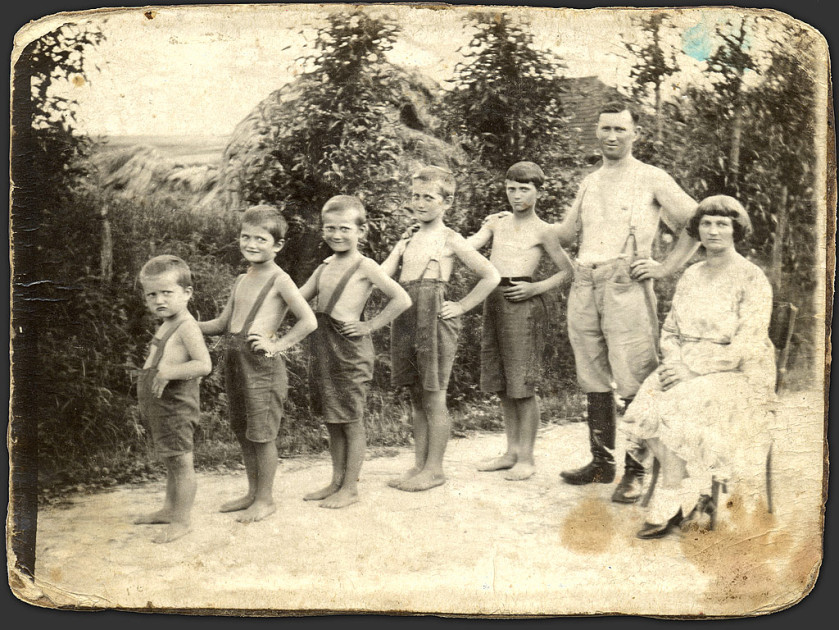A house is supposed to be a place you run to, not a place you run from. However, sometimes things can go a bit out of track and, with time, sail on astray up to a point where one’s house can hardly be considered home anymore. One of the reasons for that is ontological; humans are never quite finished, we are eternally becoming. That means people change with time. Unnoticeably, this change can move foundations of people’s thinking to opposite directions, leading to a point where, inside the same house, the core way in which life is seen and tackled differs so much that a dialog between the worldviews is rendered almost impossible; and when this results in conflicting behaviours, living together is rendered impossible. That’s when home becomes just a house.

The main difference between a Democracy and a Republic is the existence of a Constitution. A Constitution is a document that states inalienable rights of individuals within a society. That means that even if 99% of the population wants to do something, if it infringes the rights of the other 1% they cannot do it. Just as in a state, in private life a house should not be a dictatorship. If many people live in the same place, they all must be able to express their individuality, thus everyone must have a say. Decisions must be made democratically, taking into account everyone’s opinions and preferences. As Mr Marx worded it, “the free development of each is a condition for the free development of all.” However, as in any democracy, majority rule can be oppressive for a minority. And that’s where the constitution comes in. Almost as a declaration of principles and values, a house’s “constitution” will be a guide to behaviour and decision-making, aiming to assure that no one –be it man, woman, visitor, a senior or a junior member of the community– will abuse of anyone’s rights, combating despotism and arbitrariness of conduct, and making sure everyone’s behavioural foundations are clear and firm, keeping home home for everyone.
Because, as I heard somewhere, “when you are hurt and in trouble and you aren’t sure were to go, you go to the place where your heart calls home.”
Having that in mind, here is the “constitution” I would set up; these are my house’s values and rules (still under construction, new clauses are still being added):
- Everyone must be treated with respect. The following paragraphs explain what it means to treat people with respect.
- People must treat each other as they would like to be treated plus following all clauses of the house’s constitution.
- Men and women are intellectually equal and must treat each other as such.
- Prejudice of any kind –be it skin colour, nationality, religion, sexuality, social status or any other kind– is recognised to be fruit of ignorance and is unacceptable.
- Generalisations are seeing with enormous suspicion, boarding on prejudice, therefore ignorance. Thus, should be avoided.
- Justice is understood to be possible only out of forgiveness. If there is no forgiveness it is not justice, it is vengeance.
- Correction of any type aims at the establishment of justice. Correction’s goal is rehabilitation, never sheer punishment. The individual being corrected must be made aware of what was done wrongly, why it was wrong and what should have been done instead.
- It is understood that actions are physical expressions of mental concepts, therefore corrections are aimed at the thinking process that originated the behaviour and not blinded by case-specific attitudes.
- Screaming, verbal aggression and physical aggression are considered despotic means of coercion that rely on fear and authoritarian abuse. They are understood to be a primitive behaviour resorted to in face one’s inability to express oneself logically. This behaviour is a violation of the main idea of respect and is therefore intolerable.
- Gossip is unwelcome.
- Any action that does harm of refuses to help is considered wrong.
- Senior members of the family shall be treated with deference –which means common respect plus acknowledgement of their historical importance in the family.
- Polite treatment is part of being respectful. “Please”, “Thank you”, “Good morning” and “Good night” are not optional.
- No one is obliged to do anything unless specified in this document.
- Children are obliged to obey their parents as long as the parents’ orders do not go against this document.
- Amendments to this document must be decided democratically among everyone 16 years old or over that lives in the house, taking into account children’s opinions.
- There is no specific distribution of house chores based on sex. Chores are assigned according to one’s ability to perform it. Everyone that lives in the house must contribute in the house chores.
- Everyone’s sleep is sacred. Whenever someone is sleeping everyone awake must respect it and make the most not to disturb it.
- Sharing is vehemently enforced; however, it must be a personal decision. People have the right to individual non-shared property –except for items of communal use like food, hygiene products, etc.